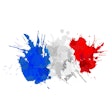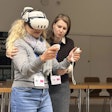Dear Imaging Informatics Insider,
While liver volumetry is important during treatment planning for patients with a chronic disease, the preferred segmentation method -- freehand drawing of the liver by radiologists -- is time-consuming and prone to human error. German researchers, however, have utilized artificial intelligence (AI) technology to develop an automated volumetry method for contrast-enhanced MRI exams.
In testing, the convolutional neural network yielded a high level of performance and demonstrated the potential for significant time savings over manual segmentation. Click here for our coverage of the research presented at the RSNA 2017 meeting in Chicago.
Can AI also enable an MRI scan to be performed in just 10 minutes? It may soon be possible, according to Dr. Hugh Harvey of Guy's and St. Thomas' Hospital in London. In a new column for AuntMinnieEurope.com, Dr. Harvey shares an update on efforts underway to make that goal a reality.
Radiology departments are poised to once again lead the way in implementing technology within healthcare -- this time with AI. Indeed, PACS with AI will certainly replace PACS without AI in the coming years, writes Dr. Neelam Dugar. She discusses adoption trends -- and the forms of AI that are most needed to make radiologists smarter and more efficient -- in her latest column, which you can access by clicking here.
Dutch researchers received a top award at RSNA 2017 for their work on identifying the four key areas of future development in deep learning for medical imaging applications. What's on their list? Click here for all of the details.
AI can also perform comparably to radiologists in interpreting screening mammography exams, according to another study presented at RSNA 2017. The use of AI as a decision-support aid or as an independent first or second reader could have an enormous impact on improved radiologist performance and cost-efficiency, according to the Dutch researchers. You can click here to learn more.
If you have any tips or suggestions for topics you'd like to see covered in the Imaging Informatics Community, please feel free to drop me a line.



















